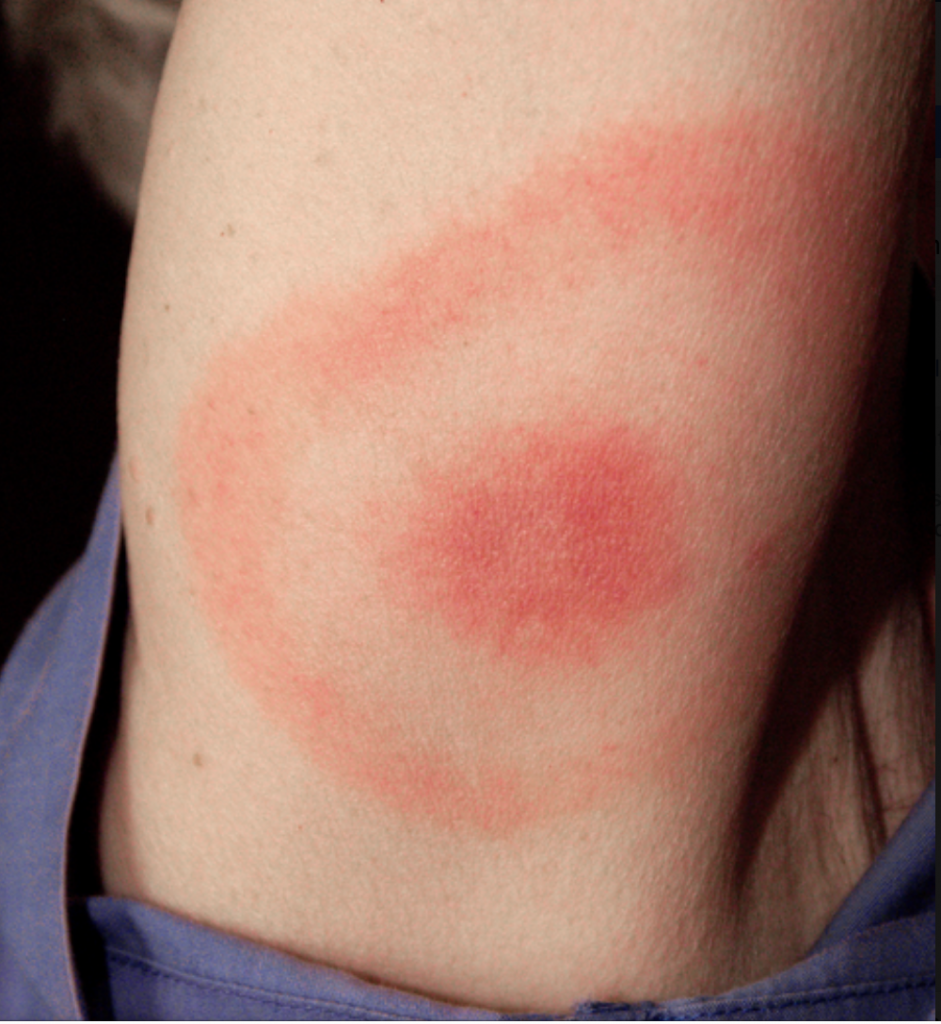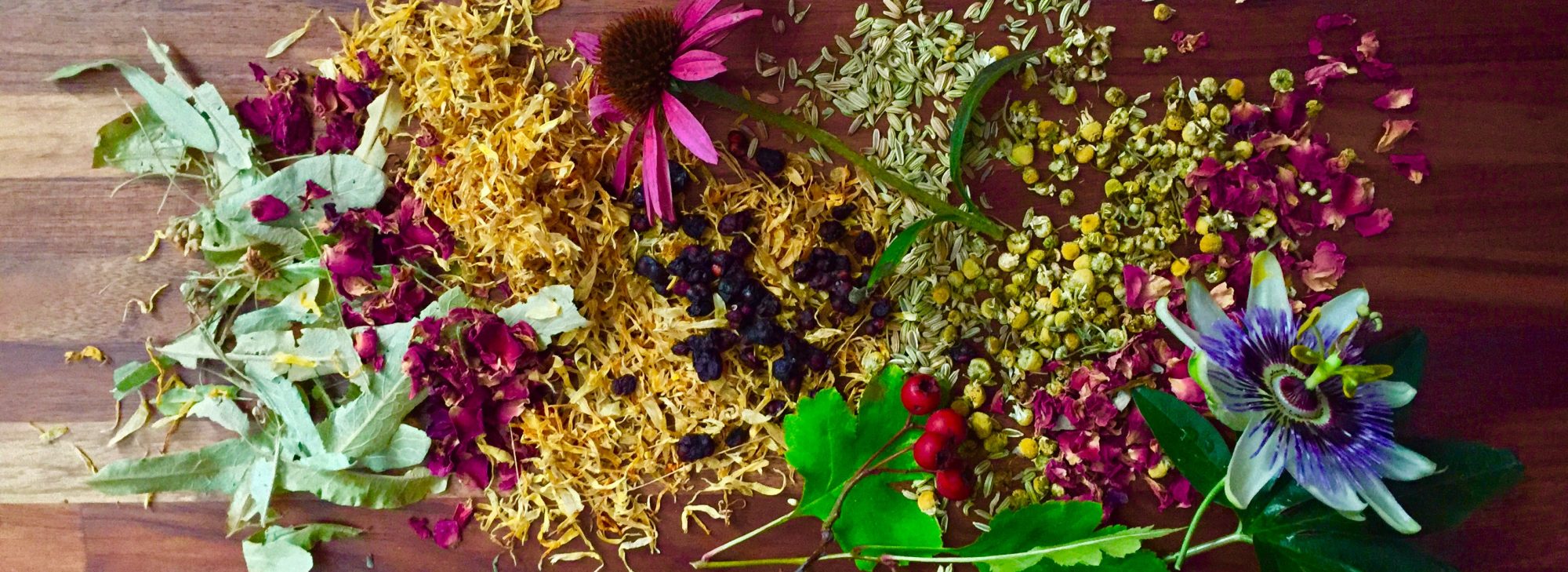Lyme disease is in the news at the moment as it is a condition that’s becoming more and more prevalent. Caused by a bacteria transmitted by ticks, often in woodlands or heathlands, it’s estimated that there’s 2-3000 new cases every year in the UK.

If bitten by an infected tick, the most obvious symptom is the “bullseye rash” but this only shows in less than half of people. Other symptoms are fever, flu-like symptoms (sore throat, swollen glands, aching muscles/joints), headaches, fatigue and poor concentration/memory, nausea and diarrhoea, and vertigo. At this point many medical herbalists (including myself) would send a patient to their GP to get several weeks’ worth of a specific antibiotic. At the same time as the antibiotic, we would use herbs for immune support that are specific to this particular type of bacteria, anti-inflammatory herbs and herbs to help the liver deal with the infection. This regime could last many months as it is a difficult bacteria to deal with!
What if you didn’t realise you had been bitten at the time, or didn’t treat it at the time? Unfortunately, untreated Lyme can lead to chronic Lyme which can be extremely debilitating. Symptoms can include muscle, nerve and “migrating” joint pains, brain fog, random tingling/numbness (it can be confused with MS), palpitations, dizziness, chronic fatigue and depression, food sensitivity, and seizures. It’s often difficult to diagnose at this point as the symptoms can mimic many other, more common, conditions (MS, fibromyalgia, chronic fatigue, Lupus/SLE, rheumatoid arthritis…) and testing is less reliable later on.
How do medical herbalists deal with chronic Lyme disease? Again, we would use immune-supporting and anti-inflammatory herbs but we would also look at each individual patient and the symptoms they are showing. The nervous system is very much involved – pain, tingling, numbness and dizziness so we would use herbs that can help restore the nerve cells and ease these symptoms. In addition to this, “brain fog” or problems focussing and concentrating can be addressed herbally. Anxiety and depression can be tackled too. We look at supporting the gut flora and food intolerances, and the most common symptom: exhaustion. It’s not just a herbal prescription – we look at diet, lifestyle and often supplements as well. Chronic Lyme, as I’ve said, can be extremely debilitating as it affects so many systems of the body so severely, and it can take many months to years of a herbal regime to get a hold on it. But it’s worth trying as it can be very effective! If you have Lyme disease, please feel free to get in contact for a no-obligation chat about how we could work together to help you feel better.

